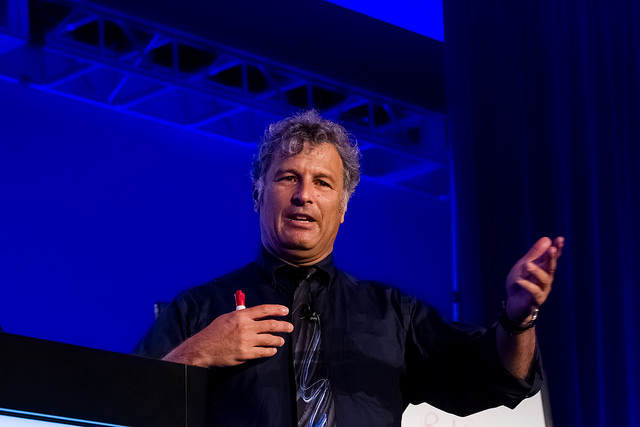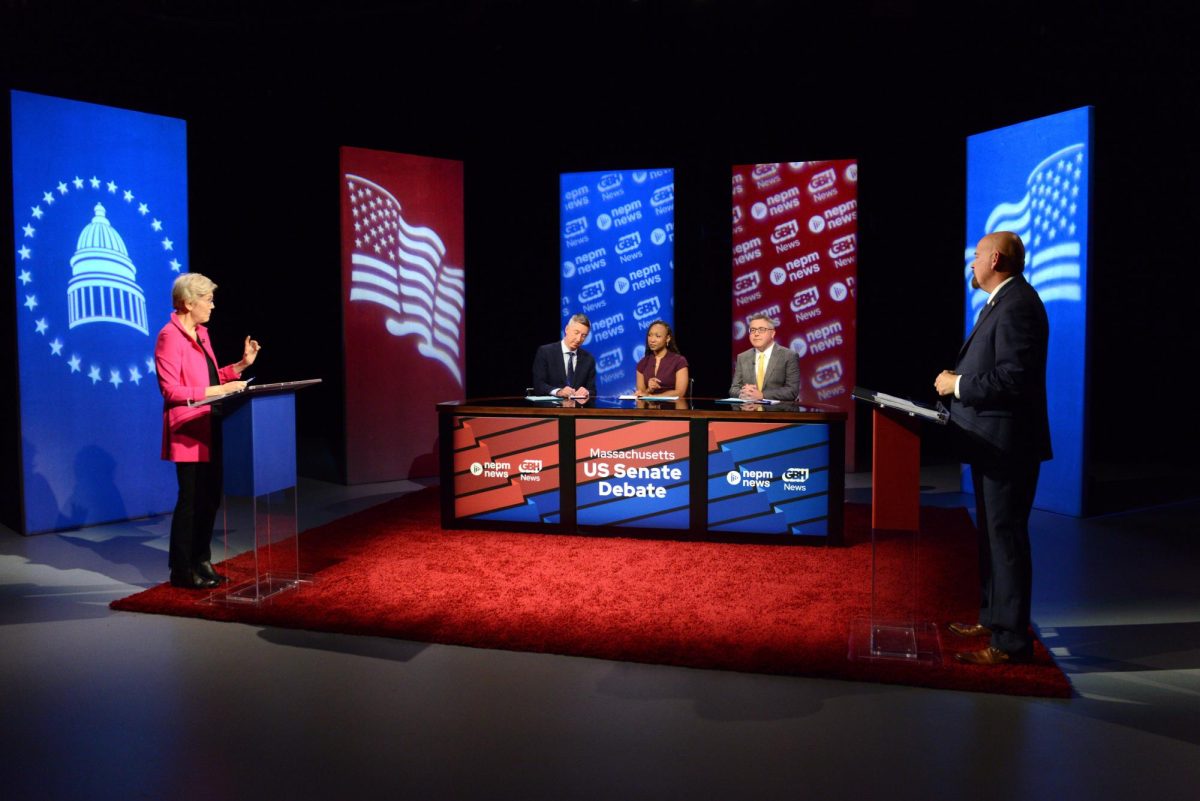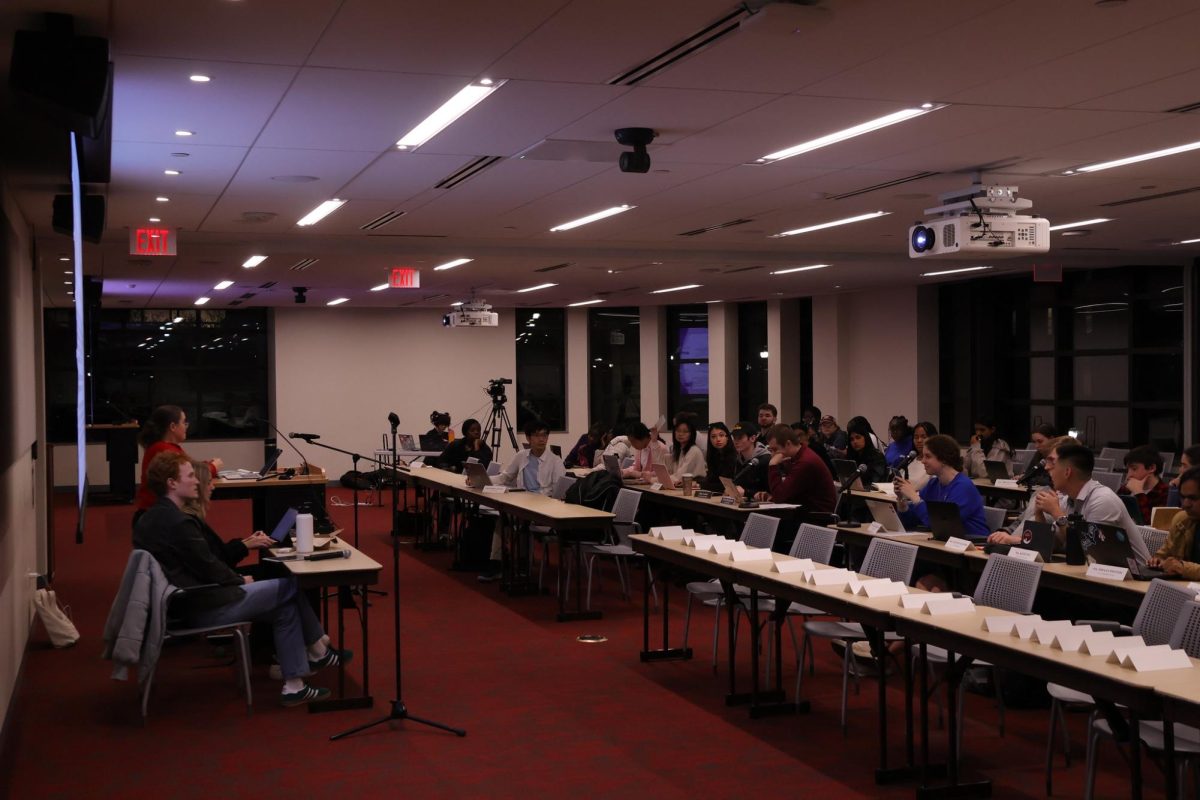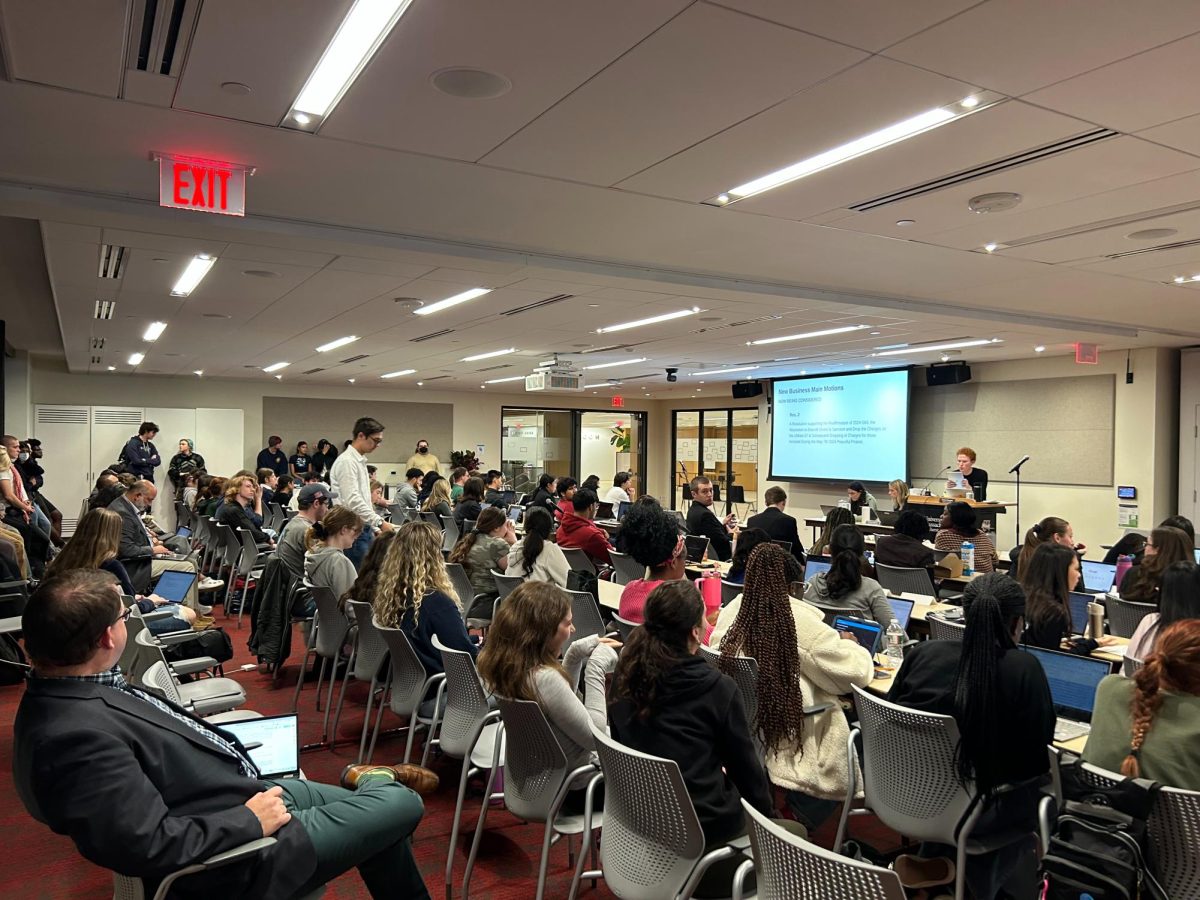Age gap and war and morality, oh my! While frightening to some, these are the variables that Leonard Steinhorn tackled while approaching the question of how President Donald J. Trump got elected in the 2016 election.
To answer the query that’s left liberal America scratching their heads, Steinhorn, a communication and affiliate professor of history at American University, turned to the influence of the 50s and 60s as a solution Thursday evening at Amherst College.
Employing the slogan “Truth, Justice and the American Way,” made famous by Superman, as the sole motif of the 50s, Steinhorn painted a mural of the decade with America’s brightest red, white and blue in the nation’s history.
“We were the world’s only major superpower at that point…we saw ourselves true to the mission of Superman…and in many ways, that’s exactly what we were in the 1950s—it was a miracle decade…we were a powerful [and wealthy] country, and that whole sense of wealth confirmed the notion that we were a good and… a virtuous country: The American way of life was right,” Steinhorn said.
But in the 60s, white faded to yellow and blue to green.
“America is the first country in world history that began to confer wisdom of youth over its elders…but because it was the elder generation that was stuck in the old model of the1950s, younger people began to…doubt their authority…” he said. “Reefer Madness [for example]…is the [older generation] saying that marijuana is going to make you crazy or is going to kill you…and you have an entire generation of young people who are smoking marijuana saying ‘it’s not like what they’re portraying!’ Once again, questioning the authorities and the wisdom of the elders.”
Juxtaposing the drastic shift in the mentality of the two decades, Steinhorn attributed the results of the 2016 election mainly to national migration due to partisan thinking.
The democratic majority expressed in the 2008 and 2012 election, was predicted to hold true for years to come.
“But here’s the thing,” Steinhorn said. “The supposed democratic majority wanted to be around people that lived like themselves and thought like themselves, so they began to cluster around college towns and urban areas…and [away from] people who didn’t share their values.”
Satirically yet statistically, Steinhorn put the election of Trump in perspective.
“Hillary Clinton won 78 percent of counties with Whole Foods grocery stores, and Donald Trump won 76 percent of counties with Cracker Barrel restaurants—there are more counties with Cracker Barrel restaurants,” he said.
During a brief question and answer portion of the event following the lecture, Steinhorn was asked, “Can you talk about Bobby Kennedy in 1968 and his impact today?” by Amherst College senior and history major, Max Steinhorn.
The lecturer replied, “Bobby Kennedy was arguably one of the last people to glue the democratic party together…so I think to some extent if Bobby Kennedy had been elected president and beat Richard Nixon…you might not have had the exploitation of race in polarization, and culture wars that ultimately did grow out of the 60s.”
Another audience member, Soledad Slowing-Romero, a sophomore history and Latin American studies major at Amherst College, asked: “After the death of Martin Luther King Jr., did the momentum [of that era] keep going, or dissipate?”
“With the momentum of MLK Jr. and Malcolm X in the 60s…a lot of African Americans were realizing that you have to find a way to channel all of this energy and keep bringing people together,” Steinhorn said. “But I do think, to some extent, that so much was consumed by Vietnam—it really overtook our political conversation…which is why King ultimately stayed to what he was doing by opposing the Vietnam War.”
Steinhorn confirmed that the values held in the 50s, although outdated, are engrained in an enormous sect of the American population today.
“There are still large parts of America that wish the 1960s never happened…to them, the 1960s disrupted all that was good and moral of America, the 1950s was moral to them and they would have liked to have seen America made great again,” he said.
Andrea Hanley can be reached at [email protected].




















Teddy Brown Harrison • Apr 5, 2018 at 7:19 pm
My husband, my hero and what a war hero looked like in 1968, says all the time–well, often, anyway–when Tom Brokaw’s book’s dustcover is featured on TV: “Don’y forget which generation sent us to Vietnam.”
And now your book (Leonard Steinhorn) I am ashamed I just now became aware of it having recently discovered how to get to CSPAN on m y new digital tuner.
I was there at the Ambassador that night, and I showed up at work in the LA VA hospital the next day. I had kissed 3 boys in high school, and 2 are on the “Wall.” I was only steps away from Royce Hall when the shootout happened. I fought with my parents at Thanksgiving and said fuck for the very first time that evening.Just recently, I was scared to death when a missile launch was reported in Hawaii.
At last, someone who gets it. Thank you from my heart. I bought a cheap, used copy of your book and eagerly await its delivery. I just might buy some new ones and give them as Christmas presents to my friends who are in their 70s.
Again, mahalo,
Teddy